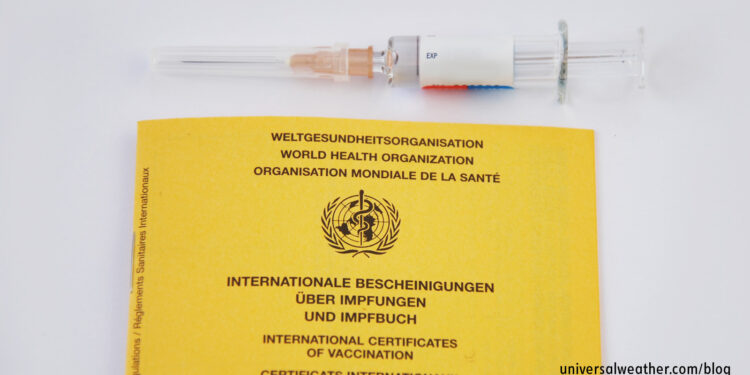Aircraft Operations to and From Endemic Countries: Tips & Best Practices (Part 2 of 2)

This business aviation blog post continues from our article last week, entitled “Aircraft Operations to and From Endemic Countries: Key Considerations (Part 1 of 2).”
When you conduct international trips in your business aircraft, it’s important to ensure that all persons onboard are prepared, from a health and immunization perspective, for travel to the intended destinations. Know what the risks are, be aware of travel and documentation requirements, and consider preventative measures – particularly when operating to endemic locations.
The following is an overview of what you need to know:
1. Close monitoring is required
As health considerations /restrictions for particular locations can change frequently, operators should ensure they have access to latest relevant health data. When traveling to/from endemic regions, discuss potential health issues well in advance with your 3rd-party provider and your ground handlers. Some countries such as Senegal issue Notices to Airmen (NOTAMs) on health-related travel restrictions, but that is not always the case. Other countries, for example, impose documentation and operating restrictions but do not advertise those well. Therefore, it’s always best to utilize the expertise of your 3rd-party provider/ground handler to accurately determine health-related requirements and restrictions that may be in place.
2. Preventative measures
In additional to sourcing current destination health information, it’s important to research whether local hotel accommodations maintain proper cleanliness standards. Ensure you have proper and adequate preventative medicines with you, and know where the best medical facilities are located in the regions of the world in which you’re operating. Stay ahead of NOTAMs and other official notices outlining any travel restrictions, and talk with your ground handlers. Best practice is to consider alternate destinations and associated permit requirements, so you’ll be able to land elsewhere if an issue comes up during your flight.
3. Considerations on arrival
At some locations you may be required to complete health forms and undergo health testing procedures to confirm passenger/crew health status. If you do not have required immunizations, you may need to obtain those on landing. Otherwise, you may be turned away and not allowed into the country.
4. Plan B options
Contingency plans are always recommended as health-related restrictions and issues have the potential to change on short notice. Senegal at the moment highly restricts flights (other than designated humanitarian missions) coming from countries with active Ebola outbreaks – such as Liberia and Sierra Leone. As landing and overflight permits are needed for many worldwide operations, Plan B contingency options should include securing permits for alternate locations. This enhances your flexibility to change schedule on shorter notice should issues come up at your primary destination.
5. More information on endemic countries
Good sources for information on endemic health risks include the World Health Organization (WHO), the CIA’s World Factbook, the Center for Disease Control and Prevention (CDC), and International Air Transport Association coverage of Ebola and other current health issues. Examples of current endemic health issues include Brazil (yellow fever in outlying areas), Pakistan (bacterial diarrhea, dengue fever, malaria, etc.), Peru (hepatitis A and malaria), India (hepatitis A/B/E, malaria, typhoid fever, and bird flu), and Costa Rica (bacterial diarrhea).
Conclusion
It’s best to allow yourself sufficient time to research potential health issues and travel restrictions/requirements for all intended foreign destinations. Be mindful that health-related operating restrictions for certain countries may change at a moment’s notice.
Questions?
If you have any questions about this article or would like assistance planning your next trip to or from an endemic country, contact me at christopherbarnes@univ-wea.com.




